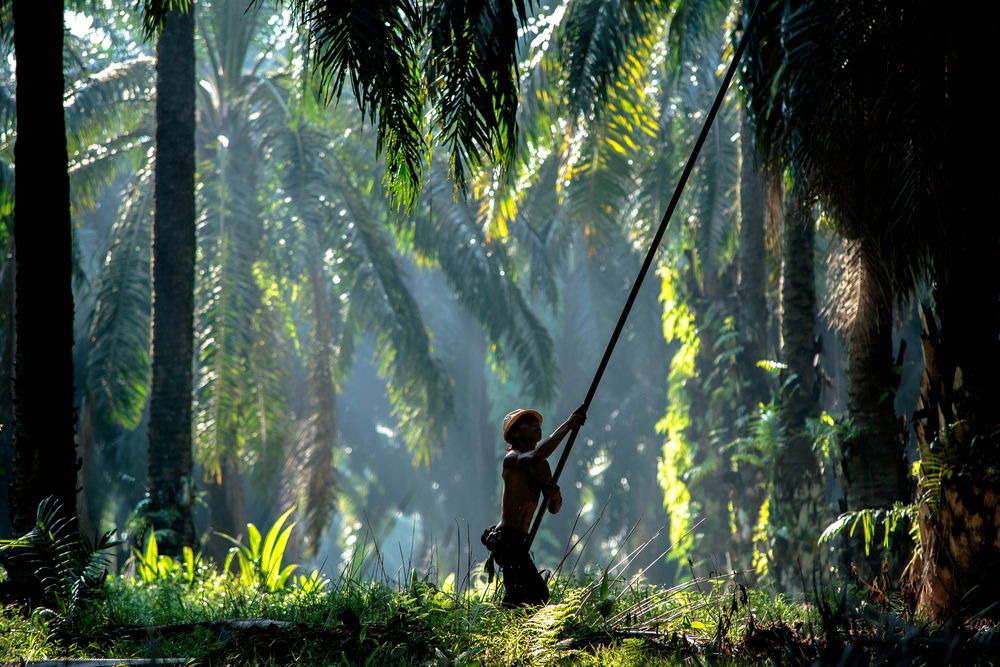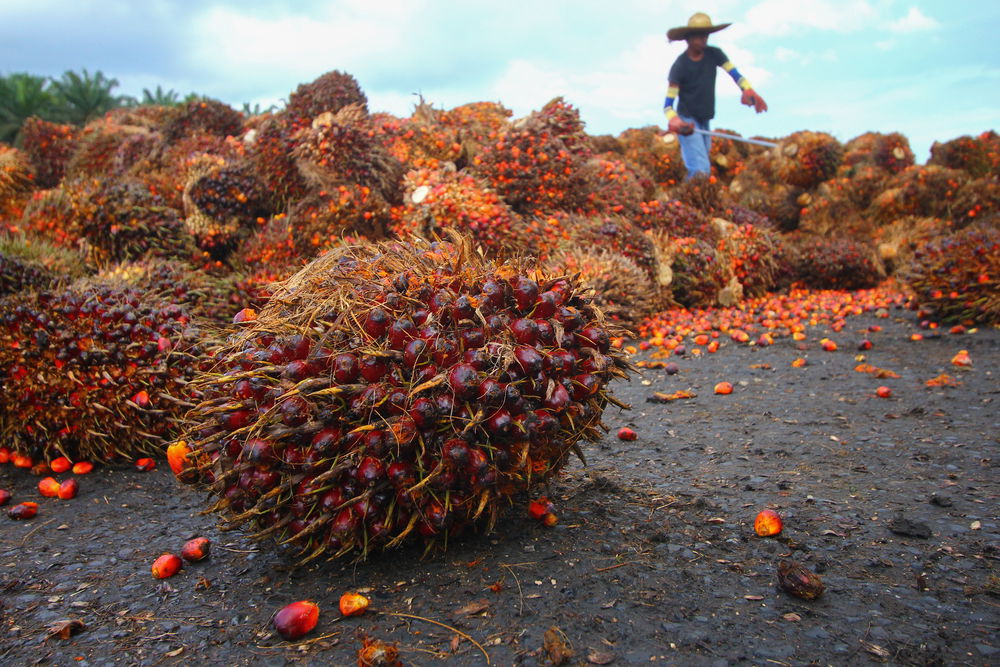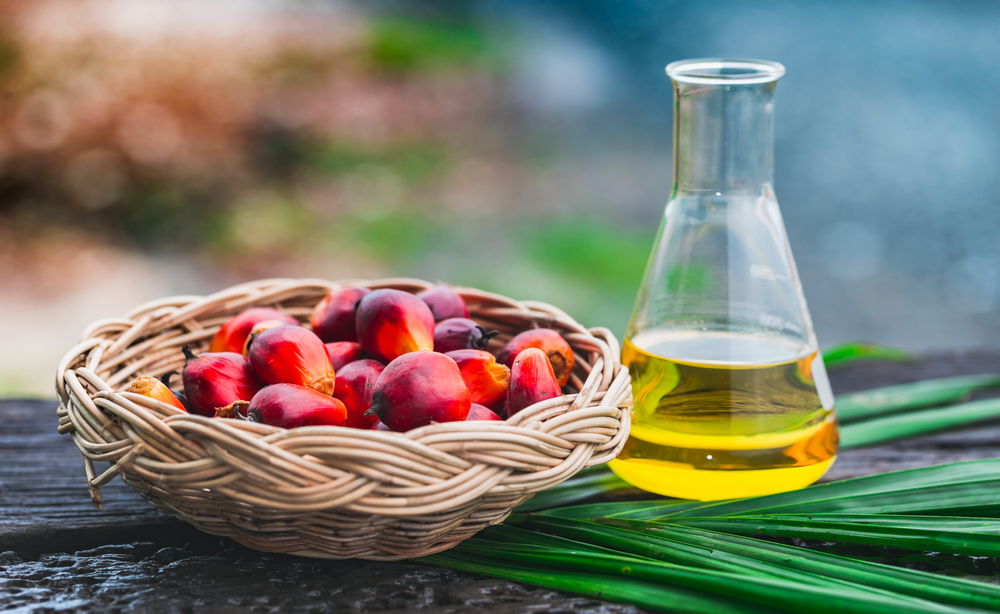 How Palm Oil Became The World’s Most Hated, Most Used Fat Source
How Palm Oil Became The World’s Most Hated, Most Used Fat Source


If you’ve ever looked at the labels of some of the things you buy, odds are at least a good few of those have palm oil in them. It’s used in food, soap, cosmetics, and even some forms of ink. We also kind of hate it because palm oil is directly responsible for some of the biggest deforestations in Southeast Asia. Despite the backlash, we still used a whopping 73 million tons of palm oil in 2020 alone.
The biggest reason why we use it in such high numbers is the same reason we prefer anything above anything else: it’s cheaper. In fact, the African oil palm produces about ten times as much oil as soybeans do. But even the story of why it’s so cheap has a dark edge to it.

Slavery
You see, one of the first common uses of palm oil was when it was used to smear over the African captives’ skin to make them look younger and smooth. This would of course allow them to get sold off to wealthy people for some extra money. This origin tied to slavery isn’t something we can blame the product for, however, and it was actually soon picked up that palm oil does have a lot of cosmetic benefits. That’s why British entrepreneurs started using it in soap. It wasn’t until 1840 however, when slavery had been abolished and a lot less palm oil was needed, that palm oil was cheap enough to completely replace the other oils that were used in candles and soaps.
The next step in palm oil’s evolution was using some labor-saving methods to make it even cheaper. While the result was disgusting to say the least, chemicals were able to strip away everything that might be unpleasing to any of our five senses. The final product ended up so bland that it could practically replace any other fat or oil at only a small fraction of the cost.

Colonialism
In the late 1800s, margarine was invented to replace butter in all sorts of diets. The main ingredient of this new and revolutional product was palm oil because it had the ability to stay solid at room temperature and melt in your mouth – which is what we want from butter. And as margarine became more popular, so did the need for more palm oil rise. Where they first looked to Africa to find more palm oil, many African communities refused the European offers and decided that making palm oil themselves by hand was still a better deal for them.
Enter Southeast Asia. This land was relatively unspoiled at that time and local colonial rules were more than happy to give plantation owners all the space they needed. The local population was coerced or forced into oppressive contracts to make palm oil for European export. In a few decades, these new plantations took over the African market almost completely.

Golden Gift
As time went by, more and more competitors for palm oil left the market. Often having to do with health concerns, the alternatives slowly fell off one by one until basically only palm oil was left. The Indonesians described palm oil as a golden gift to their country’s development, and they’re even using it as biodiesel. The EU is slowly trying to phase out its palm oil use, but consumers seem to be either uninformed or uninterested and keep demand high.
Investigations have also shown that despite slavery having been abolished years ago and all the countries where palm oil is being produced being sovereign states, the palm oil plantations still show a great deal of colonial practices. People are underpaid, have little to no rights, and have to work for much more hours than anyone should have to. Hopefully someday the world will realize that palm oil isn’t as good for us as we think.
Related posts
- Skin Problems in Teenage - Beauty , acne , blackheads , blister
- 8 Easy Ways To Be Happier Right Now - Health , adjustments , complaints , energy
- 10 Health Benefits Of Ginger That Are Seriously Impressive - Health , antifungal , antimicrobial , blood clots
- 12 Truths Your Gym Doesn’t Want You To Know - Fitness , Exercise , gyms , weight loss
- 10 Most Important Laws of Love That Every Strong Woman Should Learn - Relationship , psychology , Relationship
Latest posts
- Decluttering Before Deep Cleaning: A Comprehensive Guide - Home & Garden , Decluttering , home
- The Graceful Shift: Embracing 12 Transformative Changes After 50 - Beauty , health , mental health , psychology
- The Exit Strategy: Financial Steps to Reclaim Your Life from a Toxic Marriage - Lifestyle , mental health , Relationship , Toxic Marriage
- 10 Fun and Fulfilling Hobbies That Cost Next to Nothing - Lifestyle , hobby , mental health
- 12 Reasons Men Walk Away from Relationships—And What They Really Mean - Relationship , psychology , Relationship
- What Plus-Size Women Secretly Wish Their Partners Knew About Dating Them - Relationship , plus size , plus-size women , Relationship
- The Duchess We Adore: 10 Reasons Kate Middleton Continues to Inspire - Entertainment , Kate Middleton
- Cute vs. Hot: Decoding Male Appeal - Relationship , cute guy , hot guy , psychology
- 12 Things A Woman First Notices In a Man - Relationship , psychology , Relationship
- The Impact of Long-term Singlehood: 6 Positive and 6 Negative Effects - Lifestyle , mental health , psychology , Singlehood